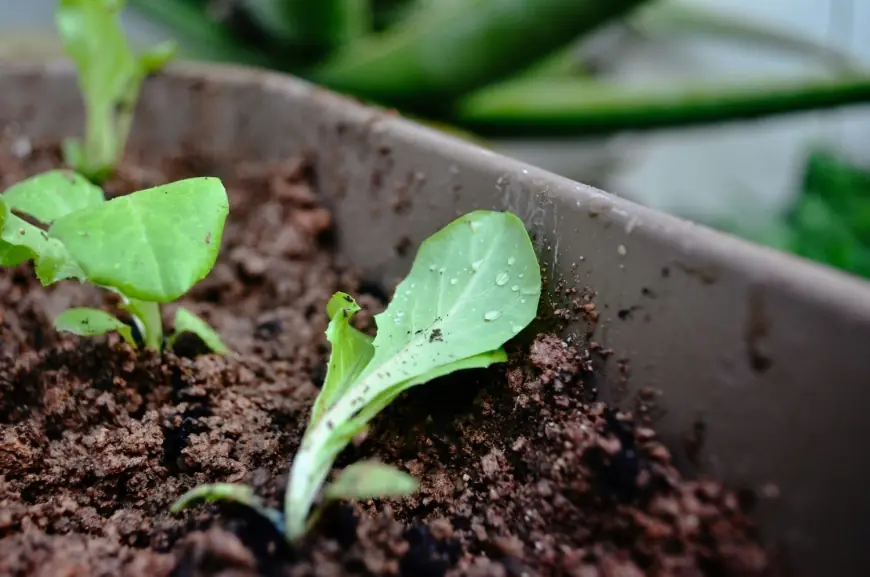What Are the Long-Term Effects of Acetamiprid on Soil and Crop Health?
In modern agriculture, insecticides are indispensable for managing pests and safeguarding crop yields. Acetamiprid, particularly acetamiprid 20 SP, is widely recognized for its effectiveness in controlling pests across various crops, including vegetables, fruits, and flowers. While it provides immediate benefits, understanding its long-term effects on soil and crop health is essential for sustainable farming.
Acetamiprid: A Key Tool in Agriculture
Acetamiprid, a neonicotinoid insecticide, is known for its systemic action, effectively targeting pests like aphids, whiteflies, and thrips. It is popular among farmers for its versatility and efficiency. Products such as Acedok 20 - Acetamiprid 20% SP delivers quick pest control and lasting protection, making them a staple in agricultural practices.
Farmers extensively use acetamiprid 20 SP insecticide in crops like tomatoes, cucumbers, apples, grapes, and ornamental flowers. Its ability to enhance crop productivity by reducing pest damage has become a cornerstone in modern farming. However, repeated use prompts questions about its long-term implications for soil and plants.
Effects on Soil Health
Soil is the backbone of agriculture, hosting a complex ecosystem of organisms that sustain crop growth. Acetamiprid interacts with this ecosystem in several ways.
Microbial Impact
Long-term application of acetamiprid can alter the soil’s microbial community, vital for nutrient cycling and organic matter decomposition. Studies indicate a decrease in beneficial microorganisms like nitrogen-fixing bacteria, potentially impairing soil fertility. In some cases, the proliferation of pesticide-resistant strains disrupts natural microbial balance, affecting soil health and productivity.
Residue Persistence
Although acetamiprid is moderately persistent, repeated applications can lead to residue buildup in soil. This accumulation may inhibit enzymatic activities crucial for nutrient availability. Non-target organisms, such as earthworms, face toxicity risks, threatening their role in maintaining soil structure and nutrient dynamics.
Implications for Crop Health
Acetamiprid provides significant pest control benefits, but its long-term effects on crops require careful assessment.
Residue Retention
Prolonged use may result in pesticide residues within plant tissues, raising food safety concerns. Additionally, it can subtly affect plant nutrient uptake processes, potentially altering growth and development patterns.
Yield and Quality
While effective pest control often translates into higher yields, overreliance on acetamiprid without proper soil management can lead to declining quality and quantity of produce. Over time, soil degradation affects the nutritional value and overall health of vegetables, fruits, and flowers.
“Healthy soil is the heart of sustainable farming; nurture it wisely, and it will feed generations to come.”
Sustainable Solutions for Balancing Use
Mitigating the long-term impacts of acetamiprid requires sustainable practices that integrate chemical and non-chemical approaches.
Integrated Pest Management
Farmers can adopt biological controls, using natural predators to manage pests and crop rotation to prevent pest buildup. These strategies reduce dependency on chemical insecticides and help maintain soil health.
Responsible Application
Adhering to recommended dosages and application intervals minimizes residue accumulation in soil and plants. Precision application technology ensures that the insecticide effectively targets pests, reducing environmental contamination risk.
Innovations Supporting Resilience
Research in agriculture is advancing solutions to balance pesticide benefits with ecological sustainability. Biodegradable formulations and precision farming techniques are being developed to mitigate soil residue persistence. By optimizing application timing and dosage, farmers can reduce environmental impacts while maintaining productivity.
Shaping the Future of Farming
Understanding the long-term effects of acetamiprid on soil and crops underscores the importance of balanced agricultural practices. While acetamiprid 20% remains a powerful tool, its use must be accompanied by measures to safeguard the environment. By adopting sustainable practices and embracing innovation, farmers can ensure that agriculture continues to thrive without compromising soil and crop health.

 sonali
sonali 












